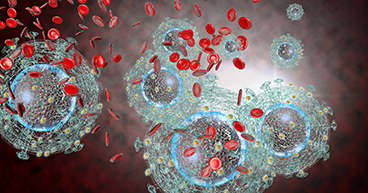
You’ve likely seen the TV commercials, or you’ve heard your dietitian talk about probiotics. But plenty of confusion continues to surround these live bacteria in your gut that helps the digestive system work. Are supplements good for you? How much should you be getting in your daily diet? Here are the answers to five frequently asked questions about probiotics.
Question: Why are probiotics important?
Answer: The human digestive tract is something like an “ecosystem,” containing hundreds of types of microorganisms living in balance with one another. The majority of these microorganisms are bacteria. The bacteria that populate your digestive tract can depend on many factors, such as diet, age, environmental exposures, medications and genetic makeup. Probiotics may help to regulate this ecosystem, so they are important for several reasons. Probiotic bacteria colonize the digestive tract with adequate amounts and types of good bacteria. This helps normalize bowel function. Good bacteria can also stick to the walls of the digestive tract and form a protective layer. Probiotics may play a role in immune function, too. Research suggests that probiotics stimulate innate immune functions in the lining of the digestive tract and increase cytokines, substances that help regulate immune cells. Another study indicated that probiotic use may help prevent acute upper-respiratory infections.
Q: Should you take a probiotic supplement, or can you get enough probiotics from food?
A: Most individuals can support beneficial flora (good bacteria that live in our systems) by eating a couple of servings of food sources of probiotics on a daily basis. Individuals who are unable to consume this amount may require supplements. If you’ve been on antibiotics often, consider a supplement to help achieve a larger dose of probiotics. Probiotic supplements may also benefit people with specific conditions, such as constipation, inflammatory irritable bowel disease or irritable bowel syndrome. In some cases, probiotic supplements may not be appropriate—for example, in critically ill people or those with compromised immune systems. Ask your doctor before starting any new supplements.
Q: What foods are good sources of probiotics?
A:Yogurt is probably one of the most frequently consumed and most recognizable probiotic foods. For those who follow dairy-free diets, a growing number of dairy-free yogurts are available (sourced from soy or coconut milk, for example). Other sources of dietary probiotics include kefir, tempeh, kimchi, sauerkraut and miso.
Q: How many strains should supplements have, and what is the appropriate dosage?
A: Research on dosing and strains is highly variable. Most probiotics contain strains of lactobacillus and/or bifidobacterium. Some studies have suggested that single strains may be beneficial for people with certain conditions. For example, a specific strain of bifidobacterium infantis at a relatively low dose of 100 million CFU daily has been found to relieve symptoms of irritable bowel syndrome. If you are interested in taking a probiotic, discuss it with your registered dietitian or naturopathic provider to help determine which supplement and what dose are the best fit.
Q: Should probiotic supplements be refrigerated? Do they expire?
A: Supplement quality can vary widely. Refrigeration has been found to improve quality in some probiotic products. All probiotic packages should include instructions for storage as well as an expiration date.


